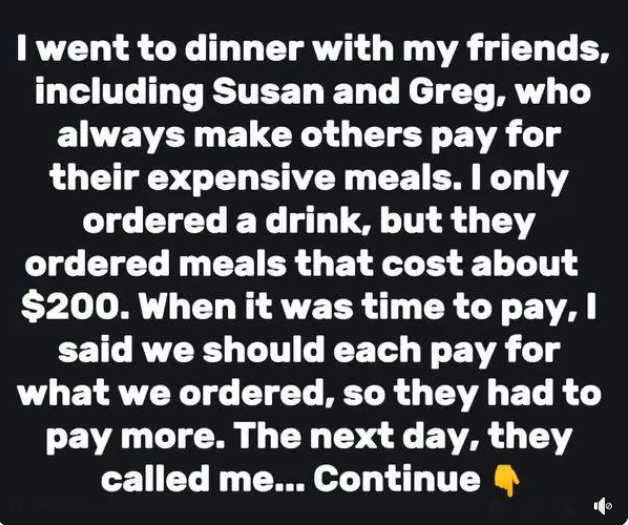
I went to dinner with my friends, including Susan and Greg, who always make others pay for their expensive meals. I only ordered a drink, but they ordered dishes and cocktails that added up to nearly $200. When it was time to pay, I suggested that we each cover the cost of what we ordered instead of splitting the bill evenly. Susan and Greg reluctantly agreed, but I could see the irritation in their eyes.
The next day, they both called me, upset. They accused me of being “cheap” and “ruining the group vibe.” I calmly explained that I wasn’t trying to cause drama, but it wasn’t fair for me to cover part of their extravagant meal when I’d only had a soda. Their tone shifted from anger to guilt, and they admitted they’d grown used to others picking up the slack.
Later that week, my other friends reached out privately. They confessed they’d also been feeling uncomfortable but were afraid to speak up. My decision gave them the courage to set boundaries. The next time we went out, everyone ordered reasonably, and the atmosphere was lighter — free of unspoken resentment.
Sometimes, standing up for yourself feels awkward in the moment, but it can change the dynamic for everyone involved. That dinner didn’t just save me money; it saved a few friendships by reminding us all that honesty and fairness matter more than avoiding temporary discomfort.





